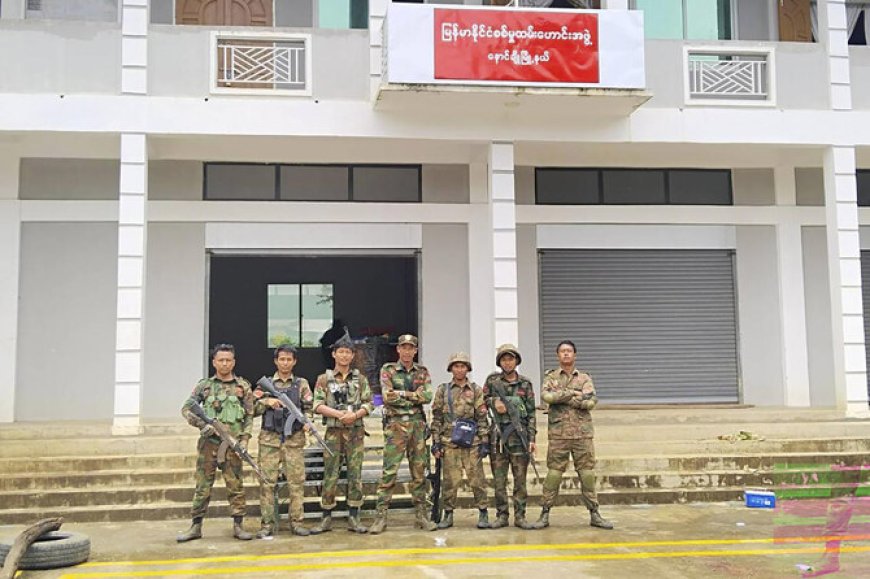Resistance forces in Myanmar, including three well-armed militias, launched a coordinated offensive in northeastern Myanmar a year ago, overturning a strategic stalemate and capturing extensive territory. The joint operation, known as Operation 1027, began on October 27, with the powerful Three Brotherhood Alliance – consisting of the Myanmar National Democratic Alliance Army, Arakan Army, and Ta’ang National Liberation Army – making rapid gains against the regime’s military. Since then, Myanmar’s ruling military, the Tatmadaw, has seen its control reduced to central areas near the capital Naypyidaw and Yangon.
Despite having advantages in troops and equipment from allies like Russia and China, the military now finds itself on the defensive. “There’s no viable route back for the military to recapture any of the territory that it’s lost,” said Connor Macdonald of the Special Advisory Council for Myanmar. Over the last year, resistance forces have expanded control across the north and east, into Kayah and Kayin states along the Thai border, with some pushing closer to the central city of Mandalay.
This shift in control has led to heavy fighting and civilian casualties, with the United Nations reporting a steep increase in deaths due to air and artillery strikes. The humanitarian crisis continues to worsen, with more than three million displaced and essential aid funding falling far short of needs.
As the fighting continues, the ethnic militias have developed their strategies, raising questions about future governance in areas where multiple groups now hold sway. In some cases, tensions have emerged between groups over control of newly captured territories, indicating potential issues in coordination should the military ultimately be overthrown. Despite these challenges, resistance leaders believe they can maintain momentum, even as the Tatmadaw considers a counteroffensive when the rainy season ends.














































